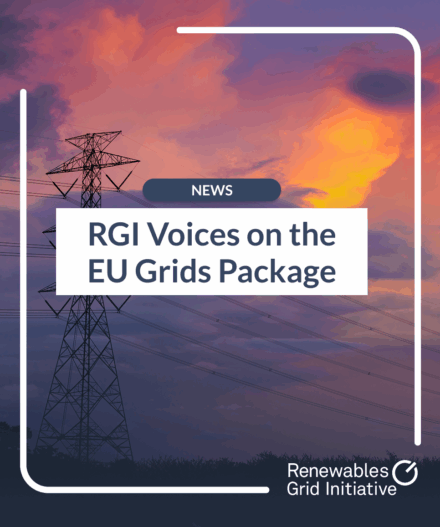
Statement
RGI Statement on the flexibility needs assessment methodology
As Europe’s energy system transforms at unprecedented speed, flexibility has become the linchpin of a resilient, decarbonised future. RGI outlines a bold vision for a tailored, robust Flexibility Needs Assessment (FNA) methodology, one that recognises local realities, drives investment in non-fossil solutions, and strengthens collaboration across borders
The energy landscape in the European Union (EU) and globally is rapidly evolving, characterised by the increasing penetration of variable renewable energy sources (RES), such as wind and solar. Pursuing the binding target of at least 42,5% renewable energy in the final energy consumption across the EU by 2030, with the aim to reach 45%, and the need to massively electrify end-use sectors will only exacerbate these dynamics. Robust electricity grid development within and between Member States coupled with system flexibility are key for managing operations and balancing supply and demand at all times, thus, supporting competitiveness, security of supply and EU’s decarbonisation pathway. On that front, RGI welcomes the provisions of the Flexibility Needs Assessments (FNA), introduced in the revised Electricity Regulation.
Flexibility needs across the EU are expected to double by 2030. However, unlocking the potential of flexibility in and for the energy system, requires a clear identification of national needs and opportunities. Energy systems, energy mixes and infrastructure needs are not homogenous across the EU – they depend strongly on geographies, resources and available flexibility options. Therefore, for the FNA to be effective, its national characteristics and differences should be recognised, and its implementation should reflect local and regional specificities and requirements, supported by appropriate mandates for TSOs and DSOs. Such an approach would assist Member States in defining appropriate policies and measures to cost-effectively address the identified flexibility needs. These policies will include, for instance, the definition of indicative national objectives for non-fossil flexibility, including the respective contributions of both demand side response and storage, as mandated by the revised Electricity Regulation, informing National Energy & Climate Plans (NECPs). Measures can include removing identified market barriers and stimulating investments, including through dedicated support schemes for non-fossil flexibility.
At the same time, flexibility should be fully integrated into energy system planning at the levels – EU, national and local. To achieve this, the FNA should be consistent with, and complementary to existing national and EU mandates, such as the adequacy assessments, while maintaining its own independent methodology. Moreover, the FNA methodology should also be regularly adapted as needed to reflect evolutions of policy and regulation, as well as system needs, allowing for the most recent scenario data and policy decisions, including those related to NECPs, to be taken into account. Ultimately, this approach would promote consistent and harmonised results across Member States.
RGI stresses that the urgency to unlock the flexibility potential across the EU should not compromise the quality and robustness of the FNA. Instead, relevant stakeholders should aim at unlocking its effectiveness and maximising its reliability. Therefore, while complying with the timeline of the Electricity Regulation, adequate time should be granted to TSOs and DSOs to develop implementation plans and deliver the data and analyses for the FNA report. This is particularly relevant in preparation of the first report, that might face uncertainties. Overall, RGI welcomes the implementation of the FNA methodology, as an opportunity to strengthen the collaboration among TSOs and DSOs at both national and EU levels, and believes that this is a key step towards optimising resource use and enhancing the efficiency of the energy system at large.
contact
Alexandros Fakas Kakouris
alexandros[at]renewables-grid.euSenior Manager – Energy and Policy Systems





